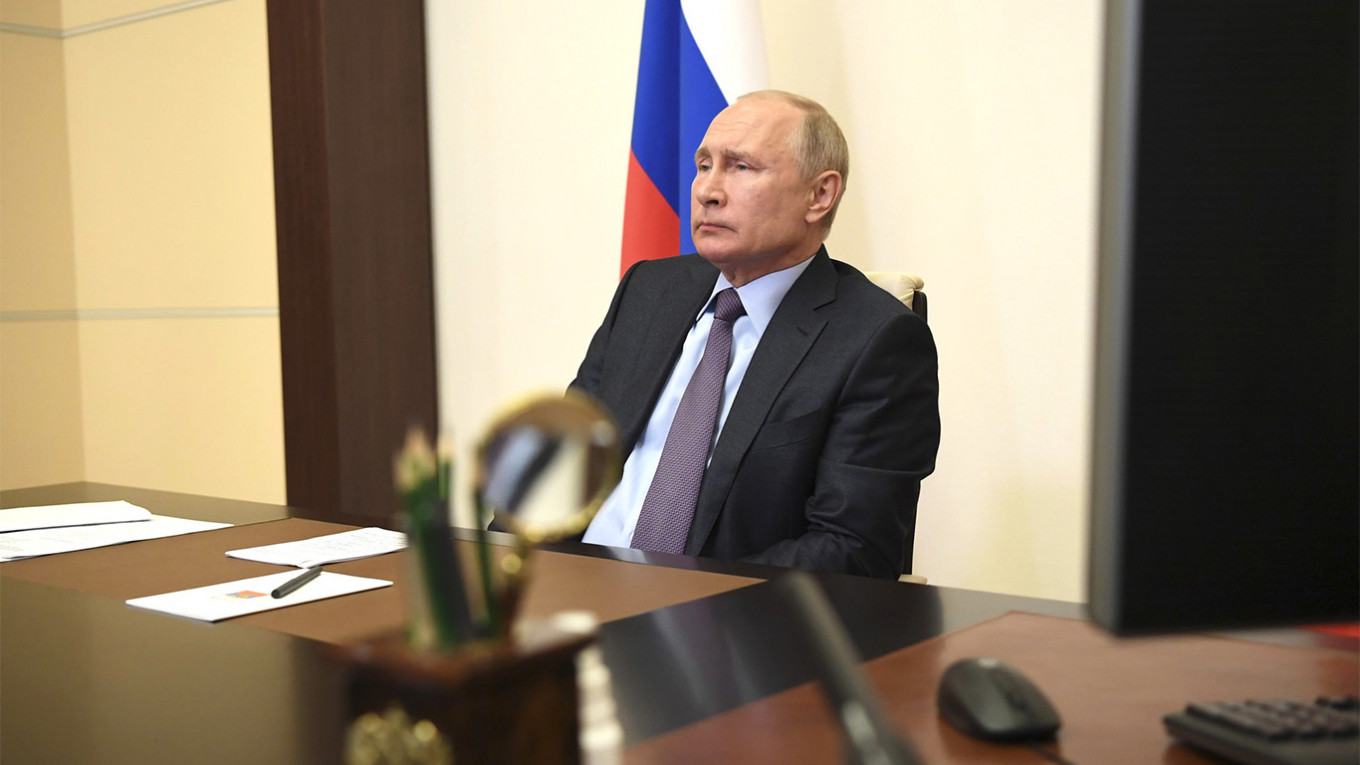
If you were taking your cues from Russia’s longtime leader Vladimir Putin this week, you would have been left thinking that the country’s worst struggles with the coronavirus pandemic were over.
“Starting tomorrow, May 12, the national non-working period will end for the entire country and for all sectors of the economy,” the Russian president announced during a televised address to the nation Monday. The unclear policy, which was in effect for six weeks, had officially allowed only essential business to remain open, while all employers were required to keep paying staff.
“It is in the interest of all of us for the economy to return to normal quickly,” Putin added.
Yet just the next day, Russia hit several unenviable milestones in an outbreak that has lasted for 10 weeks and counting.
First, Russia recorded its highest death toll from Covid-19 in a single day.
Then Putin’s spokesman Dmitry Peskov followed in the footsteps of Prime Minister Mikhail Mishustin by checking into a hospital, becoming the fifth senior government official to contract the coronavirus.
And in what has become a two-country race to the bottom, Russia slid into second place behind the United States for both fastest-growing outbreak and most coronavirus cases.
“Putin has lost touch with reality,” said Tatiana Stanovaya, founder of the R.Politik political analysis project. “It seems like he doesn’t understand which country he is in.”
Other than striding into Moscow’s main coronavirus hospital at the end of March clad in a yellow hazmat suit and respirator, the president has abandoned his usual strong leader image for most of the outbreak. He has appeared on state television weekly in video conferences with cabinet and regional officials, but has appeared bored, slouching back in his chair and playing with a pen rather than paying attention.
Insulated by people who give him good news to avoid his ire and lacking the interest to dig into the details after two decades in power, Stanovaya said, Putin appears not to grasp the full complexity of Russia’s outbreak.
“He has transformed from a politician into a missionary, feeling responsibility to history, not the people,” she added. “Geopolitical games are interesting for him; lockdown is boring.”
As the coronavirus spread throughout Russia, Putin shifted responsibility from himself to lesser authorities, tasking Moscow Mayor Sergei Sobyanin with leading the country’s coronavirus taskforce and instructing regional governors to make their own policy decisions.
To wit: although Putin on Monday called for the economy to get back up and running, he left the implementation of precise measures to achieve this aim to regional authorities. Moscow, the epicenter of Russia’s outbreak, for now remains — at least technically — under lockdown.
Political scientist Alexander Kynev believes that this “decentralization” of the power Putin has spent two decades bringing under his grip is a tactic to avoid negative blowback.
But in doing so, Kynev said that Putin has lost the “machismo” image that has underpinned his rule for so long.
“He doesn’t look like a strong leader anymore,” he said. “For so many years his charisma was his bravado. Even if he was a son of a bitch, he was powerful. And this gained him respect even from those who weren’t happy with him.”
“Now he looks like an old, sick wolf,” Kynev added.
Another possible effect of the decentralization, said political scientist Yekaterina Schulmann, is that there has been no “rallying around the flag” in Russia, unlike in other countries around the world.
“In social science this has been considered an almost automatic effect in emergency situations,” she said. “We saw it in France, Italy, Germany, central European countries, the U.K and even for a bit in the United States. We don’t have it at all.”
That rallying around the flag is what for many years kept Putin’s approval rating so high, said Denis Volkov, deputy director of the Levada Center, Russia’s only independent pollster. He pointed to Putin’s ratings having skyrocketed to 87% after the annexation of Crimea from Ukraine in 2014.
But for the past three years, since Putin’s re-election in spring 2018 for a fourth presidential term, Levada has tracked a falling approval rating — as well as for government institutions as a whole — as that patriotic fervor has faded and, with Western sanctions battering Russia’s economy, wages have fallen.
Last week, Levada measured Putin’s approval rating at a historic low of 59%. Volkov attributed the drop to Russians’ continued fears over their financial situations, which have only been heightened by the pandemic.
“The situation is still stable,” Volkov said. “But that post-Crimea cushion is gone.”
To note two of the starkest figures of the economic crash Russia is facing, a third of its economy has ground to a halt, while 735,000 Russians have already registered as unemployed over the last two months.
It is only set to get worse. Alexei Kudrin, head of Russia’s audit chamber, believes unemployment could increase to as much as 10%, while Alfa Bank analysts predict that real wages could fall by up to 5%.
It is no surprise, then, that, according to a survey published Wednesday by the state-run VTsIOM pollster, 80% of respondents backed the president’s decision to get the country back to work.
Now, Putin will set his sights on a plan that the coronavirus pandemic had put off indefinitely: passing constitutional reforms that could see him remain in office until 2036. According to the Kommersant newspaper, that vote could take place as early as June 24.
Six weeks out from that date, with Russia’s coronavirus growth curve still on the rise and anger over the country’s economic situation brewing, political analysts say a plan that looked set in stone may be on the rocks.
“If I was certain when the plan was announced in January that the reforms would pass easily,” said Kynev, “I’m not so sure now.”
